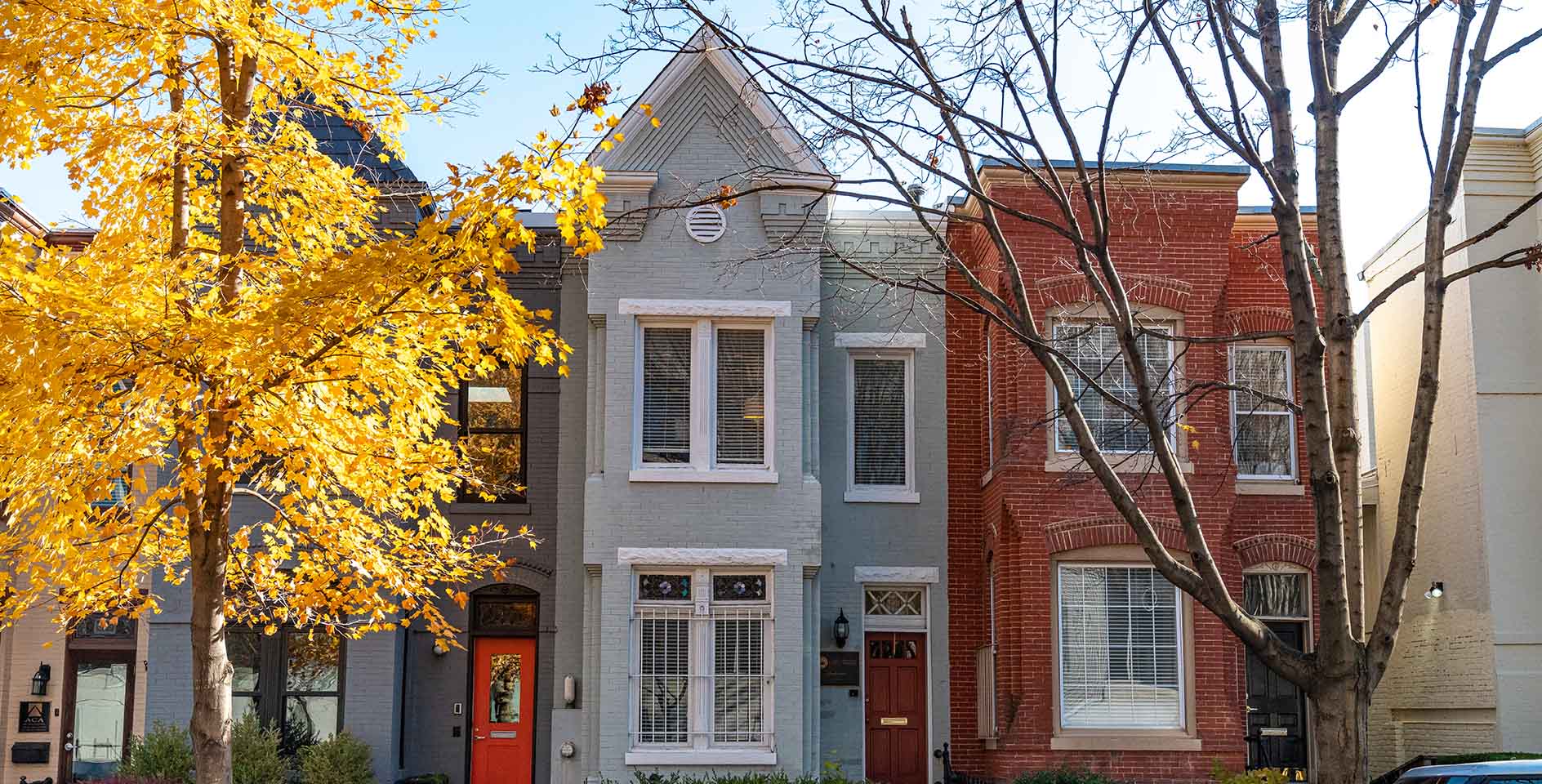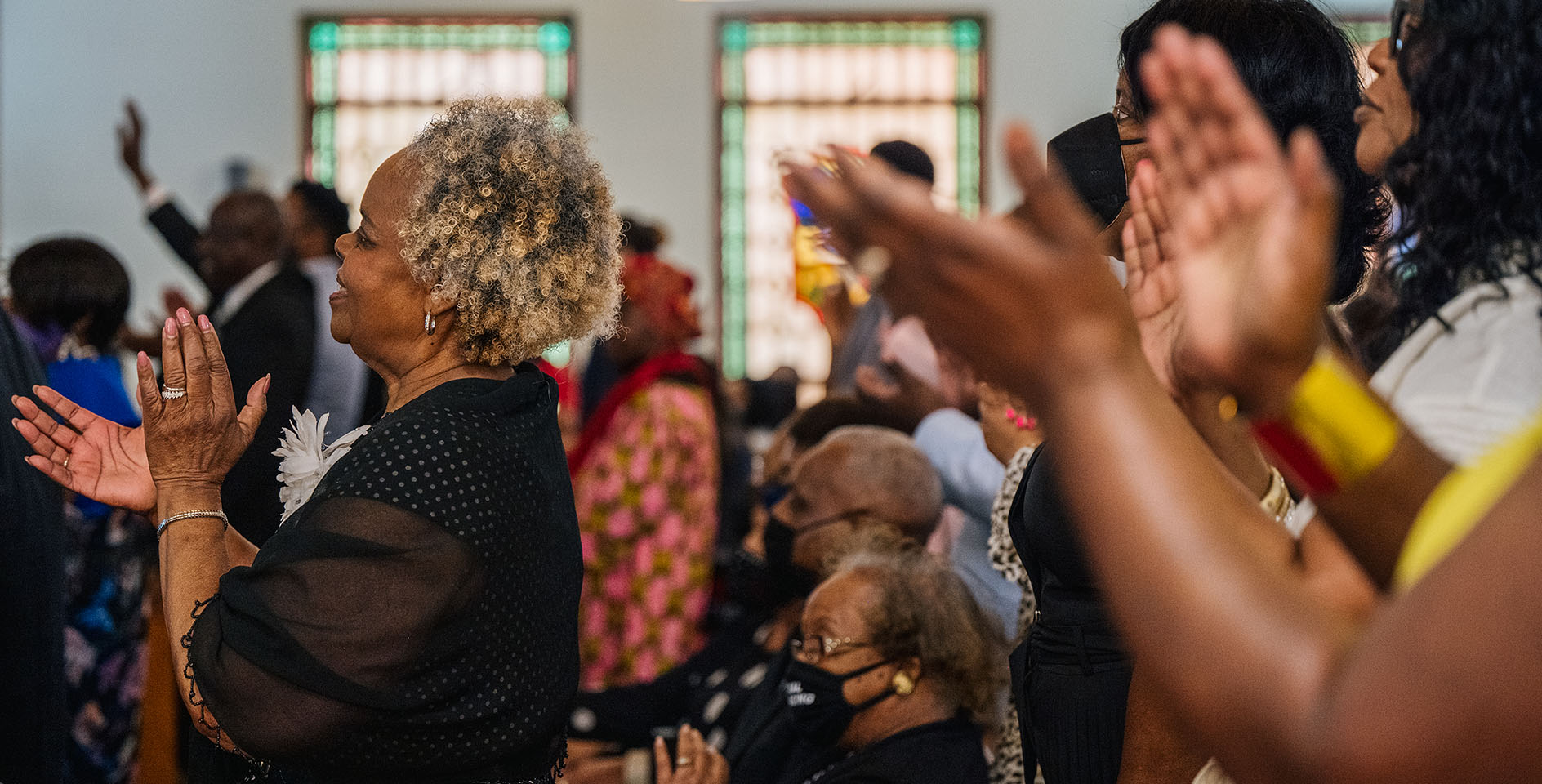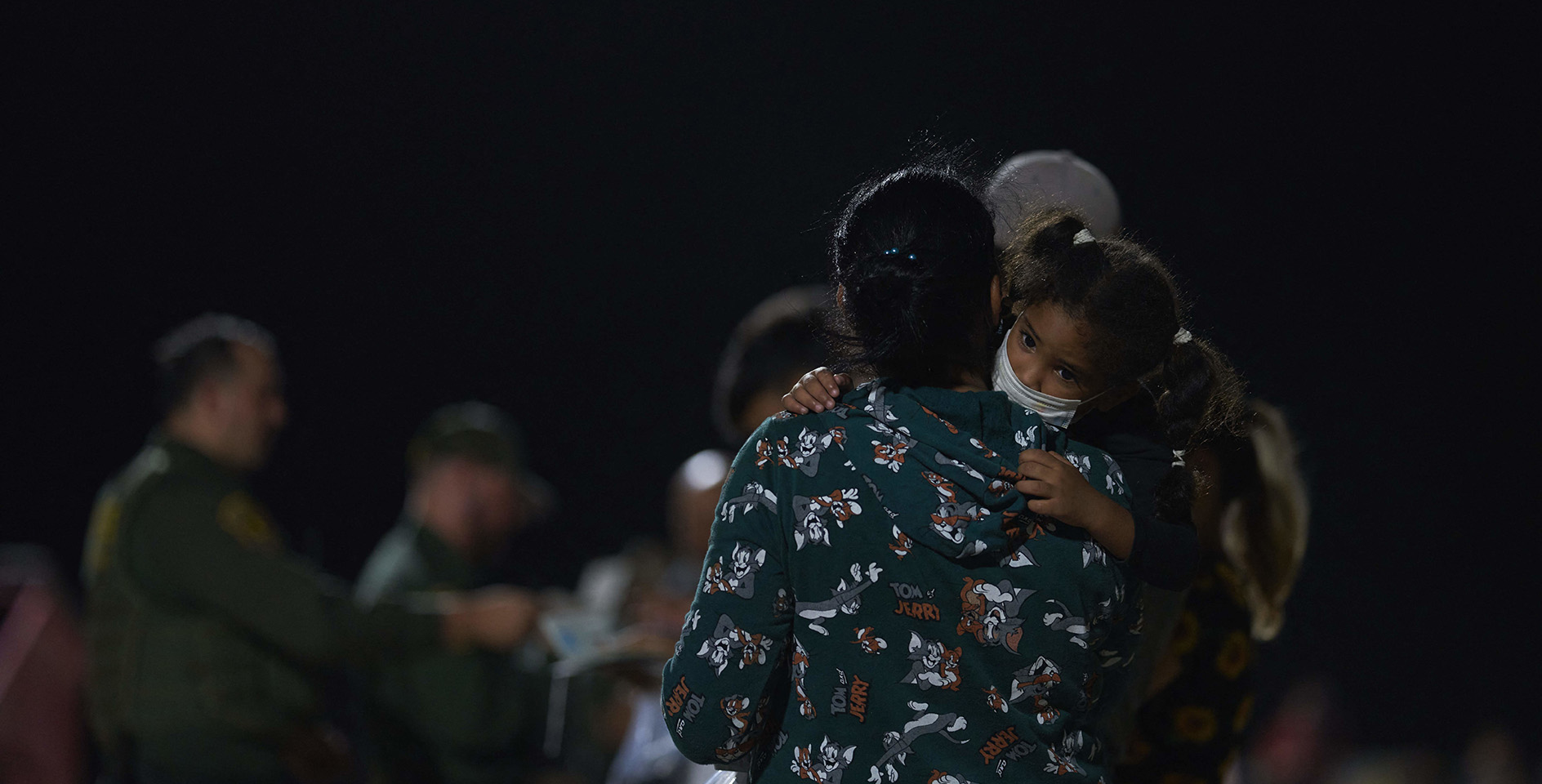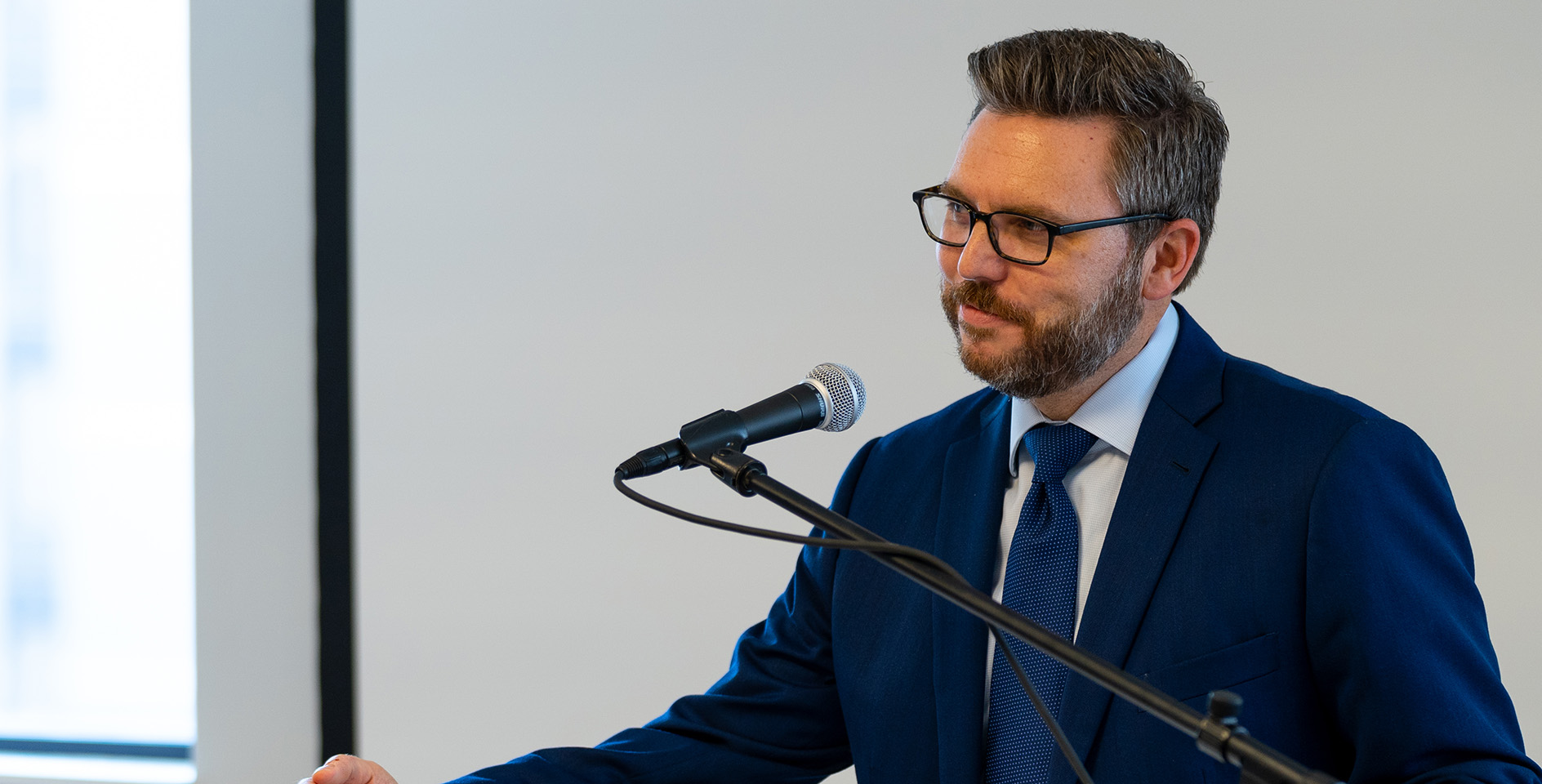Welcome to Questions and Ethics. This is Russell Moore, and today we are having a very special conversation with David Oyelowo who is the actor in the new movie, Selma, playing Martin Luther King, Jr. I saw that movie right before Christmas. I had a screening my friend, Joshua Dubois, put together, and it was a powerful movie. I mean, I found myself thinking about the movie constantly in the weeks since seeing it. And so it is a really great joy to have this phenomenal actor playing Dr. King with us today in this conversation. David, thanks for being with us.
David Oyelowo: My pleasure. My absolute pleasure.
RDM: Now, you, I understand, have always had a sense that one day you would play Martin Luther King.
DO: Well, I wouldn’t go so far as to say always, but certainly since 2007. As the listeners can hear, I’m not from America. I am from the UK, and my wife and I moved to Las Angeles in May of 2007. July of 2007 I read the script for Selma and felt God very clearly say to me I was going to play Dr. King in this film, Selma. And at that stage of course I knew who Dr. King was, but I had never looked at him and thought, oh yeah, one day I am going to play him. I had never really delved deep into who he was either. But, you know, I do know the voice of God in my life, and having heard that—even though it shocked me, it confused me because you know, I’m British. At that point I hadn’t done any Hollywood films. I knew that I was not by any means going to be the first pick for this. But then you know that’s where the journey towards all of this began.
RDM: Was it difficult to sort of inhabit—as you mentioned, you are British and Dr. King was a Southerner, and you had to sort of recalibrate your accent and everything else—how did you prepare to sort of inhabit the life of this really remarkably phenomenal figure in American and in world history?
DO: Well, you know, God having told me that I was going to do this, he didn’t abandon me. He took me through an education in what it is to be African American in this country over the last hundred and fifty years. I did a film called Lincoln in which I played a unionist soldier opposite Abraham Lincoln, opposite Daniel Day Lewis, who played him in that film. I played an African American fighter pilot in the film Red Tails. I played a preacher in The Help, and then I played the son of a butler in The Butler, a character who is in the Freedom Rides, in the sit-ins, becomes a Black Panther and then a senator. So, you know, Lincoln is set in 1865. Selma is set in 1965. The Butler goes all the way up to 2008, the beginning of President Obama’s presidency. And so, you know, that was a journey I didn’t anticipate. Those films came along in between 2007 and now doing Selma. So, that helped in terms of just getting culturally, getting imbedded into what went on in this country racially, civil rights-wise over the last hundred and fifty years. And then you know, again, knowing that this is something I was going to do at some point, I spoke with everyone who would speak to me who knew anything about him, who knew him. Andrew Young, who was a right hand man to him, was incredibly helpful to me talking to me for hours on end, showing me footage that the public hadn’t really seen. I went to where he was born, where he died, and everywhere in between. And so, you know, between that and then just the work of when we actually knew we were going to start shooting, putting on a bit of weight, shaving my hairline back, breaking down the way he spoke, working with a dialect coach, shooting in Atlanta, at Selma, and Montgomery, all the places where some of these events took place, all of that helped with getting me into the character.
RDM: What struck me in watching this film is that it is a very morally serious film from beginning to end. It starts with that act of awful terrorism against the children in the Birmingham church, and it goes all the way through the march on Selma and is morally serious without being preachy. You know, sometimes when films are dealing with morally serious issues, they can come across sort of like after school specials from back in the day where here’s the moral of the story and the people who are on the wrong side are totally wrong and cartoonish and caricatured, and it avoided that. I wonder how it was able to be morally serious in dealing with the complexity. I think it had a high view of sin showing how people could be on the wrong side without turning them into cartoon villains and showing the struggles that people on the right side were having internally as they are working through this. It wasn’t two-dimensional to me at all. Was that an intentional process as you are preparing to bring this Selma picture to the rest of the world?
DO: It was absolutely intentional, and I think that the way that you make sure that it doesn’t feel like an after school special is that you give every single character complexity and dimension. All have sinned and fallen short of the glory of God and therefore that’s why we’re called to not judge. But there is absolutely, there is a moral code by which we are supposed to live, especially as Christians, and you know, Dr. King and his band of brothers and sisters, a lot of them were ministers, and what they were talking about was love in the face of hate, sacrificial love as exhibited by Christ in the Bible, and so they had a moral position, a spiritual position, but they were still human beings. They were fallible. And that is why I think it doesn’t feel like a sermon on film because you are seeing yourself in Dr. King. We wanted to make sure, even though he is an icon, even though he is a celebrated historical figure, he didn’t walk this earth thinking of himself as an icon. He was a fallible man. He had weaknesses. He had strengths. And we want to exhibit all of those so that we see ourselves onscreen. I truly believe that’s why we go to the movies. We go to see ourselves onscreen as opposed to just sit back and watch super humans interacting with each other. And that is what we did. We tried to give layering to Dr. King, layering to LBJ, layering to Coretta Scott King, layering to the movement to show that not everyone was moving in the same direction even within the movement. There were disagreements as to how to proceed, even though the endgame was the same, and that’s life. That’s what we all recognize. And I think that’s why people are watching the film and are identifying with it and are inspired by it because it reflects their own lives.
RDM: You know, one of the things that I’ve heard, and maybe you can correct me if this is not true, is that there was an issue that no one has the rights to use the actual content of the Dr. King sermons and addresses that we are all so familiar with, so all of the dialogue, all of the preaching, all of the speaking had to be new, had to be other than that. Do you think that that was helpful in kind of getting around the way that we all have—the March on Washington speech, it’s imbedded in our minds, and so it can sort of seem above reality. It’s something we know from history—So that in with this we were confronted with words we hadn’t heard before, content that we knew, but words we hadn’t heard before in the voice of Dr. King. Do you think that was effective in kind of moving this film into that extra layer of moral complexity?
DO: I think absolutely. The truth of the matter is that the Selma campaign is nowhere near as famous or as imbedded in the public’s consciousness as say, the March on Washington. You know, our film is after the period in which Dr. King gave the “I Have a Dream” speech, and it’s before the “Mountaintop” speech, you know, two of his most famous speeches. He did give the “Now is the Time” speech at the end of the Selma march, but even that speech is not that famous. So, even though we didn’t use the actual words, I think unless you are a scholar or a real student of Dr. King you are not going to watch the film and discernibly notice that we haven’t used speeches, but absolutely it was very freeing to not be tied to speeches that people could literally go onto YouTube and compare and contrast. I personally can’t think of anything worse than having to do the “I Have a Dream” speech because, like you say, it goes from what we talked about earlier of complexity and dimension and really feeling like you are there and watching these people living and breathing onscreen to suddenly you go into your sixth grade class of doing that speech and you disconnect from what is going on in the film. Also, you know, in not using the actual speeches, it meant that we were able to tailor the speeches and tailor what was being said to the narrative that we were weaving. We wanted this to not just be about politics. We wanted it to be about the people. We wanted you to see who Dr. King was behind the veil, at home with his kids, when he was with his friends, and we didn’t just pick information out of the air. We spoke to people, read a lot, you know, spent a lot of time, like I said, with Andrew Young who knew him intimately. And so, I think that that was something very freeing for us. It also meant that we had to really study certainly Dr. King’s cadence, his rhythms, the way he spoke, in order to, even though we weren’t using the actual words, to make it feel like him. But that’s all you can do as an actor playing him is to evoke the spirit of him. I can’t actually be Dr. King, and you know, once you are already doing that, you know, you should use words that speak to that spirit so to speak.
RDM: As a man of faith, what would you say is the role of faith in this film and then in the larger picture in the Selma march itself?
DO: Well, faith is a huge theme in the film, and it was of course the thing they needed to hold onto fastidiously for this to work. Racial tension, discrimination, the legacy of slavery, these were deep-seated and very long challenges for black people in this country up until the sixties, and to have faith that things were going to change was something that you had to dig deep for because in all honesty the evidence of centuries gone by suggested that this was an uphill battle that was going to continue to be the case. But I think what you see in Selma, the film, is not only was Dr. King a speaker of the word—we celebrate him as an orator—but he was a doer of it, and that is the attribute I most admire in any Christian. You know, we have the Bible as the foundation of our faith. It is full of words, but you know faith without works is dead. You have to actually get out there and do it. And for thirteen years, from the age of twenty-six until his assassination at thirty-nine, he left his home and did it. There were so many times he could have said you know what guys, enough. My life is being threatened every day. My kids’ lives are being threatened. My wife’s life is being threatened. And my health is being challenged. There is so much pressure upon me. I feel like I’ve done all I can. But until the day he died he was living out the calling he felt came from God, and I think for me as a Christian that is one of the most inspiring things I have felt playing him is that he was not just a talker, he was a doer.
RDM: Now, one of the things you couldn’t have known as you were filming this movie is that it would be released after one of the most difficult years in recent American history as it relates to racial tensions in this country with the Michael Brown case, with the Eric Garner case, with the Ferguson protests, and other things. What do you hope this movie will do or communicate in a time in which we are just not as far along as we would have hoped we would have been in American society on these issues?
DO: Well, my hope is that people will see this film and remember again how costly the vote, which is now a right for all peoples, how costly it was. People died for this. It was hard fought. There were centuries in which it was not the right of black people, of women. Even beyond the Emancipation Proclamation in 1863, you know, we are talking about another hundred and two years people are still being marginalized and prevented from voting in Selma in sixty-five. And the Voting Rights Act was actually passed after that campaign. Now, so the two things for me is that to not vote, in many ways is to really diminish what these incredible Americans did. And not just black—white as well. After Bloody Sunday, as shown in the film, black and white came together. People of all faiths came together to not just deem this a black cause, but an American cause. And you know, we are now in a time in the country where the Voting Rights Act is being dismantled. People are being marginalized from voting yet again. That is something that I think would really sadden both Dr. King and LBJ’s hearts, when they fought so hard to get this thing passed. The other thing that I am very encouraged about is the protests that are going on beyond Ferguson and the Eric Garner situation is that they are largely peaceful. They are not just black people. They are black and white. They are young and old. And people are making their voices heard in I think an effective way. It’s now just, what are the demands? How do we go from here? How do we governmentally change things so that we don’t make the mistakes of the past again? That’s why I feel so blessed that this film is coming out at this time because I think it would be easy for young people to make the mistake, we are in a completely new day, this has never happened before, these protests are completely fresh and new. Well, they are not. And you know, to look at individuals like Dr. King and several of the foot soldiers and amazing people who brought about change in the sixties and to look at what they did as a blueprint I think would be something that would be an amazing legacy of the film, and an amazing legacy of the people who brought about this change back in the day.
RDM: This is David Oyelowo, who is the actor portraying Martin Luther King in the new film Selma. David, thanks so much for being with us today.
DO: My absolute pleasure. Thank you for having me.
RDM: I really encourage all of you to go and see this movie, Selma, and to reflect on it and think about what this movie means in terms of thinking about this time in American history both in terms of the depravity evidence there, when you have people who are being beaten on their way to simply peacefully protest for their right to vote, but also the hope that comes with people who are driven by more than just the immediate in order to fight for generations yet to come. It’s an inspiring thing to see.
This is Russell Moore, and this has been Questions and Ethics, and we will be back next time to talk about issues of the day.










